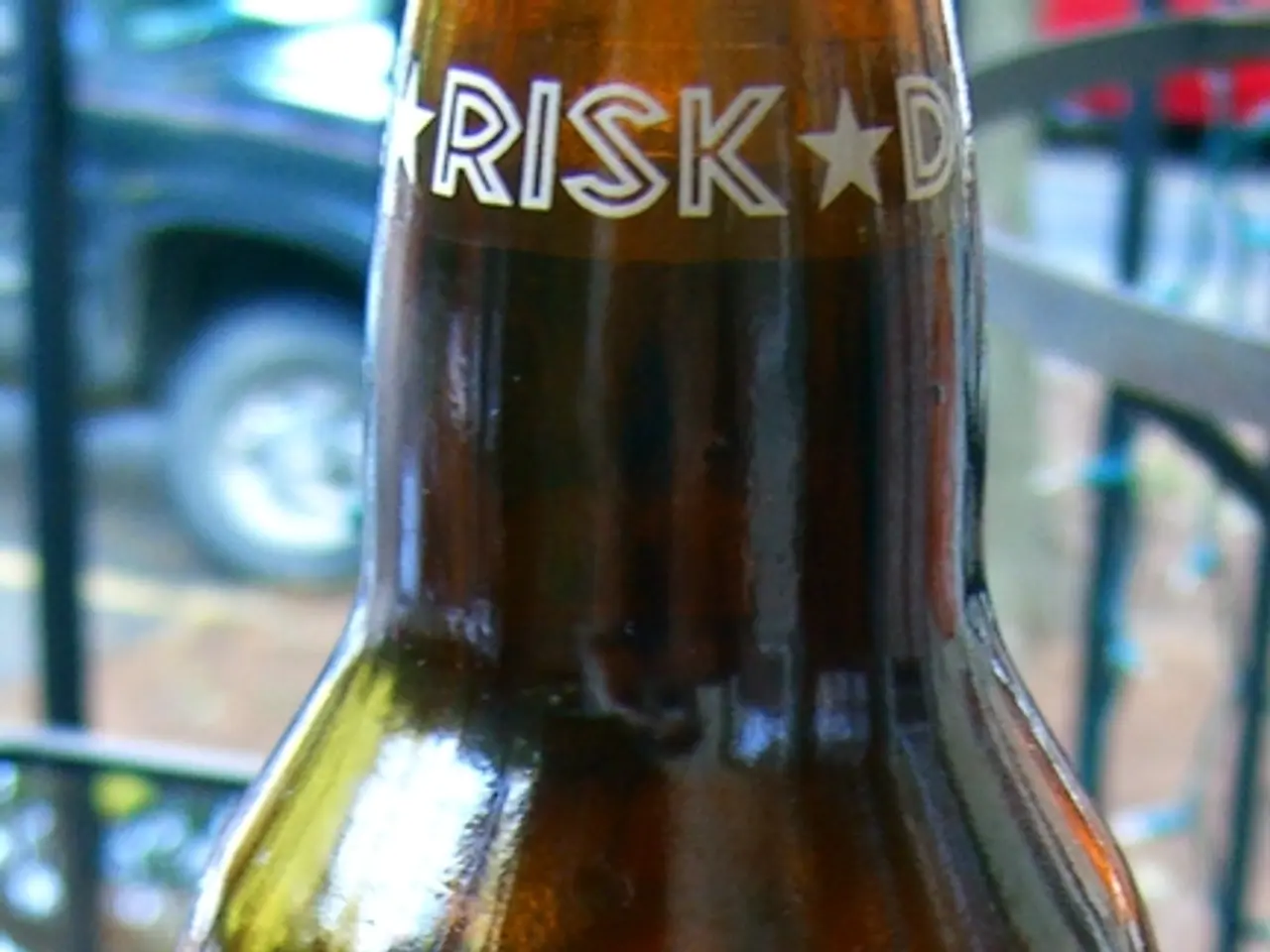Medicine Erleada's Potential Adverse Reactions and Strategies for Management
Erleada (apalutamide), a brand-name oral tablet, is prescribed for certain types of prostate cancer in adults. However, it belongs to a group of drugs called androgen receptor blockers and can cause side effects.
If you develop serious side effects while taking Erleada, call your doctor right away. If the side effects seem life-threatening or you think you're having a medical emergency, immediately call 911 or your local emergency number. Common side effects include fatigue, rash, diarrhea, high blood pressure, weight loss, decreased appetite, joint pain, flushing, swelling of hands or feet, nausea, and mild allergic reaction.
For mild symptoms of an allergic reaction, call your doctor right away. If your symptoms are serious, immediately call 911 or your local emergency number. Symptoms of an allergic reaction can be mild or serious and may include skin rash, itching, flushing, swelling under the skin, swelling of the mouth, tongue, or throat, and mouth sores.
High blood pressure was a common side effect in Erleada's clinical trials. If you experience joint pain during your treatment with Erleada, talk with your doctor. Joint pain was one of the most common side effects reported in Erleada's clinical trials. Symptoms of joint pain may include stiffness or swelling of the joint, difficulty moving or straightening the joint.
It is possible for Erleada to cause long-term side effects. Examples include joint pain, weight loss, cerebrovascular problems, seizures, and cardiac side effects. If side effects become difficult to tolerate, talk with your doctor or pharmacist. They can suggest ways to manage them or recommend other prostate cancer treatment options.
If you notice any symptoms of cardiac side effects during your treatment with Erleada, talk with your doctor right away. Symptoms of cardiac side effects may include chest pain, shortness of breath, headache, nausea, and vomiting. Erleada can cause cardiac side effects such as high blood pressure and ischemic heart disease.
The manufacturer of the drug recommends that males with partners who can become pregnant use birth control, such as condoms, while taking Erleada and for at least 3 months after stopping treatment. If your sexual partner is pregnant or planning pregnancy, talk with your doctor about your birth control needs.
Erleada is not chemotherapy; it is an androgen receptor blocker. If you have questions about what to expect with Erleada's side effects, talk with your doctor or pharmacist. Sharing your experience with side effects while taking Erleada can help make medications safer for everyone. If you develop a side effect while taking Erleada and want to tell the FDA about it, visit MedWatch or call 800-FDA-1088.
Depending on the prostate cancer type (non-metastatic vs metastatic, hormone-sensitive vs castration-resistant), alternatives to apalutamide include other androgen receptor pathway inhibitors (ARPIs), radioligand therapy, novel surgical techniques, and combination regimens currently under investigation. For instance, Enzalutamide (Xtandi), Darolutamide (Nubeqa), and abiraterone (Zytiga) are ARPIs recommended for metastatic hormone-sensitive or castration-resistant prostate cancer. Pluvicto® (lutetium Lu 177 vipivotide tetraxetan) is a targeted radioligand therapy delivering radiation directly to prostate cancer cells, approved for metastatic castration-resistant prostate cancer that has progressed despite hormone therapy and/or chemotherapy.
Aquablation therapy is a novel surgical technique under trial for localized prostate cancer, offering a less invasive alternative to radical prostatectomy, though still investigational. Combination therapies in clinical trials include hormonal therapy plus chemotherapy and immunotherapy (e.g., cabozantinib plus nivolumab) or neoadjuvant PARP inhibitors like olaparib for high-risk localized prostate cancer with specific genetic alterations, showing promise in selected patient groups.
Traditional treatments such as radical prostatectomy, radiation therapy, and standard hormone therapy remain mainstays and may be used alone or in combination depending on disease characteristics. Complementary therapies (e.g., diet, meditation, acupuncture) are sometimes used alongside medical treatments to improve well-being but are not substitutes for proven cancer therapies.
If Erleada treatment leads to cardiac side effects such as chest pain, shortness of breath, headache, nausea, and vomiting, discuss it with your doctor immediately. Given that Erleada can potentially cause long-term side effects like joint pain, weight loss, and cardiac issues, it's crucial to discuss manageable solutions or alternative prostate cancer treatments with your doctor if side effects become difficult to tolerate.
Despite being an androgen receptor blocker, Erleada is not chemotherapy. However, there are other options such as other androgen receptor pathway inhibitors (like Enzalutamide, Darolutamide, and abiraterone), targeted radioligand therapy (such as Pluvicto®), novel surgical techniques (like Aquablation therapy), and combination regimens for various types and stages of prostate cancer.




